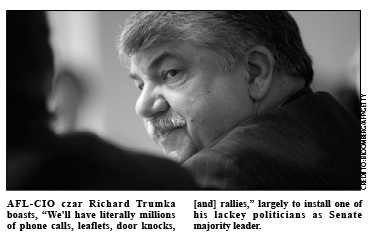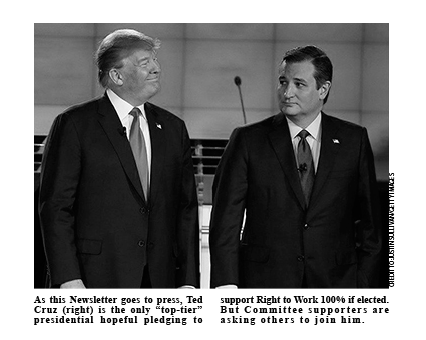A Bigger Union-Violence Loophole For Big Labor?
Union Dons Insist Criminal Organizing Tactics Aren’t ‘Extortion’ (download the June-July 2016 NRTWC Newsletter) No court date has yet been set. But Mark Harrington, secretary-treasurer of Local 25 of the International Brotherhood of Teamsters, and four of his henchmen…







